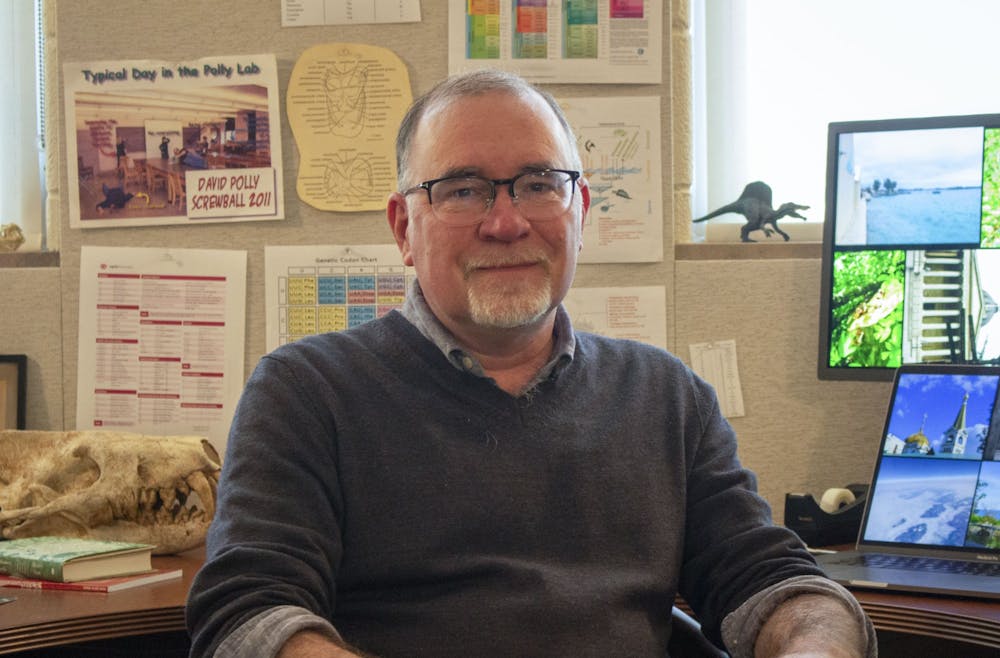The American Association for the Advancement of Science recognized six IU faculty members in late January as part of the 2021 class of AAAS fellows.
Along with 558 other fellows from national and international universities, the six faculty members received this honor to reward their scientific efforts.
Harikrishna Nakshatri, IU School of Medicine professor and new AAAS fellow, said three former fellows must nominate a faculty member to be considered for the honor. Two of the three must be outside the faculty member’s institution.
Nakshatri said he became a fellow in recognition of his research on breast cancer.
Nakshatri said he began breast cancer research because of his interest in hormone studies. He said he originally trained as a veterinarian, but when he had to treat a healthy-looking cow that could not become pregnant, he started to wonder about hormones. In his Ph.D. program, he studied hormones and applied his knowledge to breast cancer.
Nakshatri said he studies how genetic ancestry affects breast cancer and how many different cell types are in the breast. He also works on pinpointing the earliest signs of breast cancer.
“At least in 20% of the breast cancer, we can pinpoint to one particular genomic aberration that may have started the breast cancer,” he said. “We do think that we have a certain class of drug that may work on them.”
He said he hopes to move that drug into a clinical trial.
David Polly, chair of the IU Department of Earth and Atmospheric Sciences, was recognized as a fellow in the geology and geography section for his work in vertebrate paleontology and morphometrics. He said he was surprised when he received a nomination.
“One of the many reasons that it surprises me is that what I do is not very mainstream,” he said. 'It's sometimes overly complicated in ways that paleontologists don’t normally do.”
One example of Polly’s work is a collaborative study on snake vertebrae, using the sizes and shapes of vertebrae to determine how the snakes from millions of years ago looked.
Polly said he liked fossils as a kid. After taking an anthropology class as an undergraduate, he realized his love for fossils and animals again. Later, he decided to go to graduate school for paleontology.
“Some combination of love and luck,” he said about his decision to go into paleontology.
Polly said receiving the honor was flattering, but also brings about a sense of imposter syndrome.
“It also just feels a little bit embarrassing in the sense of feeling that maybe my accomplishments are not as great as other people who have gotten it,” he said.
Michael Weiss, a professor at the IU School of Medicine, received the honor for his studies on insulin signaling and sex determination.
Weiss said he has worked on these studies for more than 30 years. Weiss said he discovered his passion for insulin signaling when he was working as a resident in the intensive care unit of a hospital and patients with diabetes-related complications filled all 12 beds.
For years, Weiss has worked to produce a heat-stable insulin, which would hopefully be cheaper and drive down shipping costs since the product would not require refrigeration. Now there’s insulins people can boil, he said. Weiss said he is trying to get these into clinical trials.
Weiss and other colleagues discovered a protective hinge in the structure of insulin, which could help produce more smart insulins, or insulins that self-regulate their release.
“It’s really gratifying to see light at the end of the tunnel,” he said. “That everything can come together.”
Mark Kelley, a professor at the IU School of Medicine, earned his fellow position through his work with DNA repair and cellular redox. He has worked on a specific protein and its signaling aspects, which has translated into work in cancer, retinal disease and more.
“Fellow scientists thought that my career and work was worthy of being an AAAS fellow,” he said. “You know, it's a very pleasant, very rewarding feeling to see that hopefully you’ve made a difference.”




